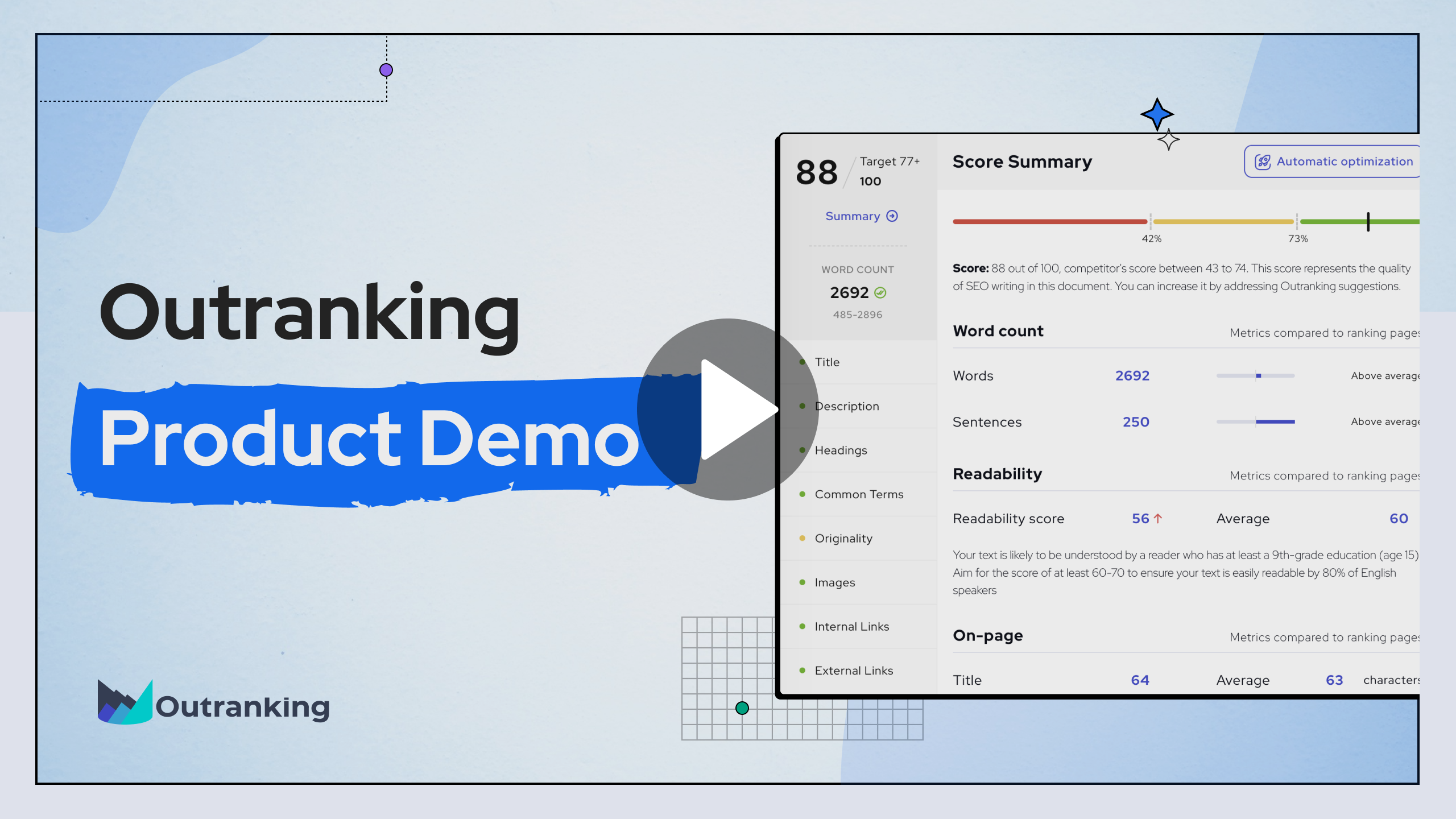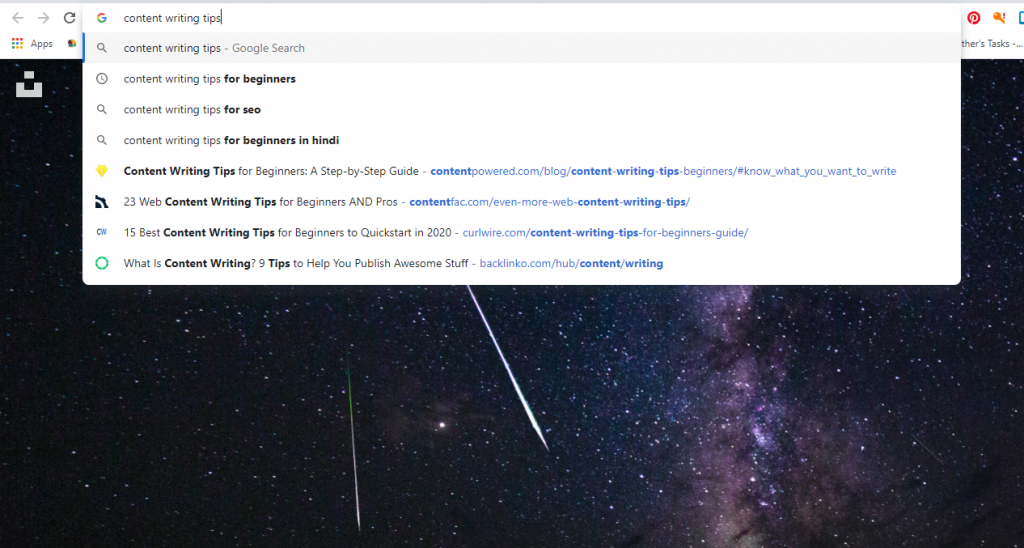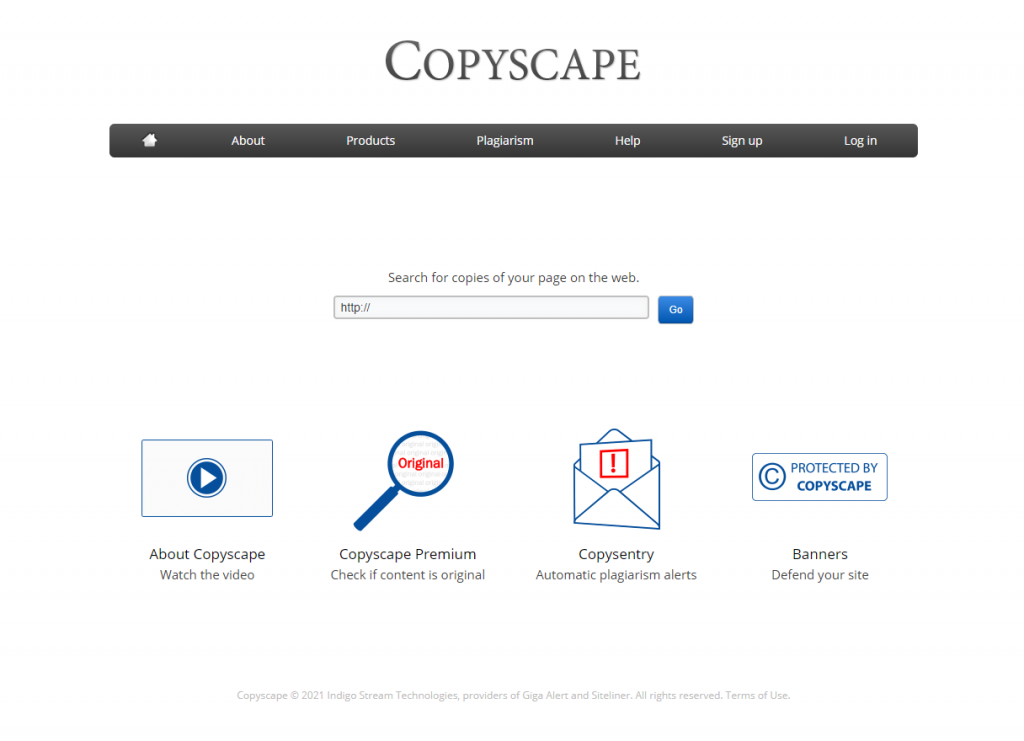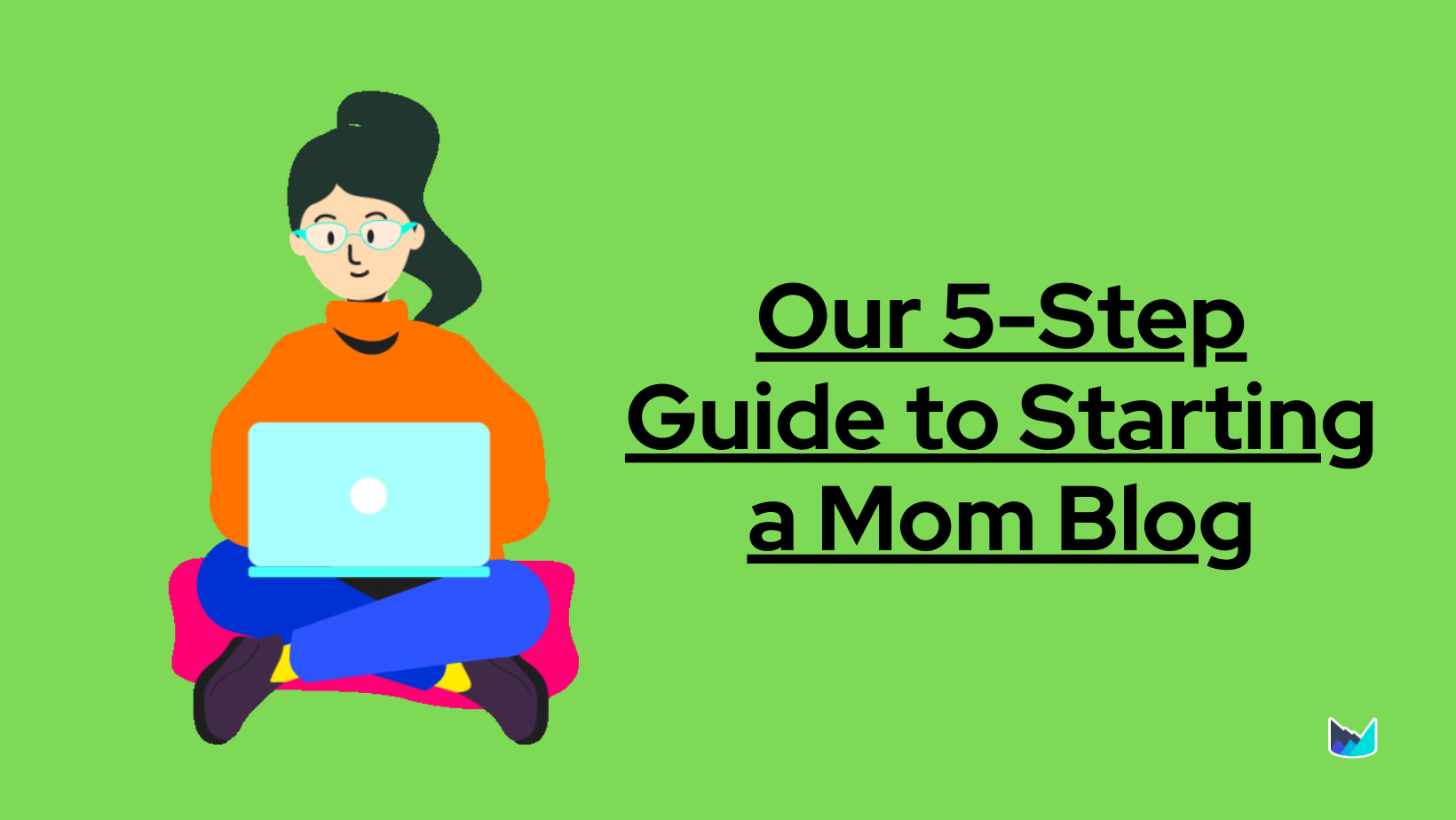- Product
- SEO Content Editor
- SEO Content Strategy
- Content Optimization
- Content Briefs
- AI Assisted Writing
- Keywords Clustering
Preview a demo walkthrough
Outranking the competition with our cutting-edge SEO strategies.

- Pricing
- Resources
- Sign In
- Get Started

Content Writing Tips for Beginners: How to Write Content Google Loves
Table of Contents
Table of Contents
17 of the Best Content Writing Tips for Beginners
Content marketing is a critical part of marketing strategies for businesses. Everywhere you turn, you see companies adding blogs to their websites to draw in new customers and retain others. But whether you’re writing articles for your business or an aspiring content writer, you’ll find that writing content online is completely different than everything you were taught in school.
That’s why we created this list of smart content writing tips for beginners so you can make sure you make a great first impression
For the purpose of this article, I’m focusing on online content since that’s some of the most popular content to consume. While many of these content hacks may apply, tips for writing a book or essay writing tips are different than those for online content.
The Best Web Content Writing Tips for Beginners in 2021
These are actionable and simple tips that you can implement now to improve your writing and take your content marketing to the next level.
1. Know What the Content Goal Is
One of the most important things about the content writing process is that you must be clear about your content’s goal. This is one of the best tips for blog writing especially.
What type of content are you writing? Is it a case study or blog post? Or maybe you’re writing a white paper or article for an online magazine. Whatever you’re writing, get clear on the goal of your content.
Is the goal simply that the post is affiliated-related, a review of a product, selling your own product, promoting a client, or simply informational. Make sure you understand the goal before you sit down to write.

2. Do Keyword Research
Keyword research is critical if you want to rank higher than page eight on Google so it’s one of my top tips for writing a blog post or other online content. There are several reasons for keyword research is important.
First, you need to write about something people are actually searching for. As content creators, we want to create helpful content that solves our readers’ problems. Therefore, keyword research helps you find keyword phrases that people type in Google often
There are some crucial things to remember when performing keyword research, though. You must choose keywords you can rank for, and you need to keep search intent in mind.
Since Google wants to provide the most relevant search results for queries, you need to create high-quality content that matches someone’s search intent if you want to rank high in this search engine. So, keep the four types of search intent in mind – informational, navigational, transactional, and commercial investigation.
You also need to choose a keyword you can actually rank for, so keyword difficulty is a significant factor in selecting the right keyword.
The best way to find good keywords is with a keyword research tool like KeySearch, Ahrefs, SEMrush, or Outranking.
If some of these terms are unfamiliar or don’t know how to do keyword research, check out this complete SEO content writing guide.
3. Create an Outline
I’ll admit, I’ve never been a fan of outlines. I never used them for my college papers, but I use them to write SEO-optimized content, so I don’t miss anything. Creating an outline helps keep your writing organized to make sure your writing flows from beginning to end and won’t confuse your reader.
Creating an outline helps decide on a course of action for your content and writers often face a block about where to start. Creating outlines is one of the most crucial tasks to create ranking content.

You can use platforms like Outranking.io to create briefs using AI. Signup for a free trial and see how easy your content creation can be with Outranking.io.
4. Headlines are Important
I hate to sound dramatic, but your headline is everything. You only have seconds to entice someone to click your link and read, so a clickable title is a must.
Headlines serve multiple purposes. They don’t just grab the reader’s attention; they also help Google understand what your article is about for ranking purposes and summarize what your post is about.
Here are some tips on writing a good headline:
Use popular magazines such as Cosmopolitan, People, and others for headline formula inspiration.
· Write more than one headline.
· Use CoSchedule’s Headline Analyzer
· Split test headlines
· Make them clear and specific.
· Always include your main keyword
And for SEO purposes, your headline should be between 55 and 70 characters.
5. Understand and Know Your Audience
Knowing your audience is critical! You should get to know them intimately – maybe even stalk them a little. One of the most important things you need to know is what their problems are. What keeps them up at night? What do they need help with?
To do this, you want to find your ideal client avatar or reader. You want to learn everything you can about them, and one way to do this is to go where they hang out on social media. Learn how you can help them and write content that solves their problems, and you’re golden.

6. Write Short, Simple Sentences and Short Paragraphs
This piece of advice goes against everything we’ve been taught too but don’t write long paragraphs. Each one should only be two to three sentences long, and you can even do one sentence alone occasionally (*gasp).
I know it’s totally not grammatically correct, but online writing is very different from traditional writing. People have short attention spans, and big chunks of text make things hard for people to skim.
That’s also why you should make your sentences short and simple. Readability is a vital analysis to ensure your content is engaging and easy to read. This is one of those golden tips for paragraph writing.
In order to not get lost in the midst of how to track some of these details, you can use Outranking.io to guide you through the process and give you exact recommendations.
7. Use a Good Writing Tool
One of the best tips for business writing or other related content is to use a good editing tool. Great content is free of grammatical errors, and since humans are prone to spelling and grammar issues, good writing tools are essential. Of course, don’t rely solely on an editing tool because they make mistakes too, but together you have a great team.
There are many great writing tools out there, but some of my favorites are Grammarly, ProWritingAid, and the Hemingway App. Grammarly and ProWritingAid analyze your writing, find mistakes, and even give suggestions on changing sentences for better readability.
If you are looking for a powerful SEO writing checker to help you create content that Google will love, use Outranking.io.
Outranking.io has some very clever tools to help you auto-write and research using AI.
And it’s a general consensus that you should make sure your content is easy to read – at an 8th-grade reading level. Keep this reading level in mind no matter what type of content you’re creating, and you can check it with the Hemingway App. The app helps with passive voice, hard-to-read sentences, and using fewer adverbs too.
Using a good editing tool is probably one of the best tips for freelance writing because you always want your work to be error-free.

8. Don’t Plagiarize
Plagiarism is a huge problem with online content too. Some people will steal your content and post it on their site, which can get them in BIG trouble. So, you don’t want to be caught copying other people.
It’s easy to accidentally copy a few words when you’re doing your research; after all, you’re looking at other peoples’ articles on the same topic when you’re optimizing your content, So, running your writing through a tool like Copyscape is a good idea.
ProWritingAid and Grammarly have plagiarism checkers, but they are not as robust as CopyScape, so it’s a good tool to add to your writing arsenal.

9. Do Use a Call to Action
Most of the time, you’re creating content to convert, whether that’s sales, email subscribers, social media followers, or something else. So, that means including a call to action (CTA) is critical
But you should only use one. Too many CTAs will confuse your readers, and that often leads to them clicking off the page. Make your CTAs obvious and clear. Tell them what you want them to do
10. Write for Humans
User experience is a large part of Google’s ranking factors, and we get so caught up in doing everything we can to make Google happy that our content can come out sounding like a robot. Your readers will not be happy, and your user experience scores will plummet.
So, remember to write for people, not Google. I assure you that if you focus on solving your readers’ problems and writing quality content for humans, Google will be happy too.
11. No Keyword Stuffing
While it is essential to do your keyword research and put your keyword in your title, meta description, beginning of your content, and naturally, throughout it, overusing your keyword is bad.
Keyword stuff is trying to fit your main keyword in as many times as possible in hopes that Google will rank you supreme. That used to be a strategy that worked, but now that practice is outdated and not something Google likes. In fact, it can hurt your reputation and score.
So avoiding keyword stuff is one of the best SEO writing tips.
Plus, Google becomes smarter every day and recognizes keyword phrases with or without filler words such as a, the, for, etc. And using related keywords helps Google understand what your content is about and helps you fully cover the topic.

Outranking.io can help writers gauge the usage of the keywords in the content very easily.
12. Wait Until the Next Day to Edit
So you’ve written your article or whatever project you’re working on, and now it’s time to edit. The best thing you can do is wait until the next day to edit. If you start editing right away, you may miss errors because you just worked on that piece of content.
But if you wait until the next day when it’s not fresh on your mind, then you’ll see things you may have otherwise missed. Also, read it aloud. When you read your writing aloud, you can hear what sounds off that an editor like Grammarly may have missed.
Also, if you don’t read it out loud, then your mind naturally fills in the words that may be missing. If you can’t wait until the next day, at least wait a couple of hours to edit your content.
13. Deliver Value Through Your Content
Always make sure your content provides value to your people. You don’t want to fill your articles with a lot of fluff, and you don’t want to write about topics that don’t help anyone. So, delivering value is one of those tips for writing articles you hear often, but people don’t realize they’re filling their content with fluff.
Whenever you can provide quick wins and actionable tips and give them something free to help them further. Whether you call them freebies, opt-ins, content upgrades, or something else, use them to grow your list and make fans for life.
It doesn’t have to be a huge eBook; in fact, that may overwhelm people. Create a simple checklist, worksheet, short video, or something similar that gives them a quick win that makes them feel accomplished.
14. Use a Thesaurus
One content writing tip for beginners that I don’t see often is to use a thesaurus like Word Hippo. You don’t want to use the same word over and over in the same sentence, paragraph, or even whole piece of content.
What do I mean by this? Say you’re writing an article about a motorcycle. You don’t want only to use the word motorcycle throughout the content. Use adjectives like chopper, hog, motorbike, or other applicable terms.
It breaks up the redundancy and makes the readability of your article better. Sometimes, there may be a word that doesn’t have alternative word choices and in these cases, just do the best you can.
15. Emotion Impact Makes Fans for Life
While many factors affect what content goes viral, one key thing is emotional impact. Viral content makes readers feel something, whether that’s rage, sadness, joy, or any other emotion.
So, when you edit your content, ask yourself if you saw your article on social media or in a newsfeed, would I care if I was scrolling through a bunch of articles and saw mine? Exceptional content is usually written to evoke emotion, whether that’s crying, rage, or laughter.
16. Use Active Voice
Using an active voice is one of the best tips for writing better, and one most people don’t even know about. Most people don’t even remember active and passive voice from English class in school, but you want to write in active voice whenever you can. It makes your writing more concise, the story moves faster, and it keeps readers engaged.
Passive voice is often used in academic writing, which is why so many of us revert to passive voice. Whether a sentence is in active or passive voice depends on the subject/object verb agreement. Here’s an example:
Active – Chickens eat corn.
Passive – The corn was eaten by chickens.
You can see how the passive voice makes the statement longer and unclear, so imagine many sentences like this in a row. I learned how to write in active voice using Grammarly, and now it’s harder for me to write in passive.
Now, that’s not to say that passive voice doesn’t have its place in writing. Just use it sparingly.
17. Optimize Your Old Content
We all have content we wrote before we knew what we were doing. Maybe once you read this article, you’ll see that you need to go back and make your content more active and make an emotional connection with your readers.
And then there’s SEO. Your content needs to be SEO optimized to rank on Google so people can find it, which means you also need to write content people are searching for.
As I mentioned earlier, many factors go into ranking on Google, and it can seem complicated. I recommend taking an SEO course if you’re not comfortable with the process.
FAQs
I wanted to take the chance to answer some frequently asked questions I often get about content writing.
Can I be a content writer with no experience?
Yes! Anyone can be a freelance writer, but it’s hard work. You’ll need to find a profitable niche so you can position yourself as an expert and learn the things you don’t know. I suggest you take a freelance writing course or something similar.
There are free classes and paid ones but remember it is good to invest in yourself and your business. You do need to spend money to make money.
What skills does a content writer need?
There are plenty of skills that successful content writers have, such as understanding SEO, time management, good communication, being a good researcher, and much more. Here’s a resource that explains the best freelance writing skills for content writers.
Which calls to action should businesses use in their content?
There are many CTAs you can use in your content, including:
- Join us
- Subscribe
- Sign up
- Try for free
- Get started
- Send me specials now
And many more. For an extensive list of CTAs, check out the HubSpot article on calls to action.
Final Thoughts on Content Writing Tips for Beginners
Now that you know these content writing tips for beginners in 2021, you’ll be writing awesome content right from the start. And I mean, seriously awesome.
Who doesn’t want that?
The sooner you become a master of your own content creation, the sooner you’ll be able to reap the rewards. And if you want to get paid to write online as a freelance content writer, you seriously want to level up your content writing skills.
So, there you have it, the ultimate beginner’s guide to writing content like a pro. I hope these content writing tips have helped you understand how to write clear and engaging content people actually want to share.
DO YOU HAVE ANY FAVORITE CONTENT WRITING TIPS? LEAVE A COMMENT BELOW!
Heather is a Certified Content Marketing Strategist and the freelance writer and blogger behind Writer’s Life for You and Blogger’s Life for You. She’s made it her mission to help women leave their dreary 9-5s for good so they can get paid to write online every day. Heather is the author of two eBooks and a course on how to choose your freelance writing and blogging niche.



